15 Causes Behind Your Dog’s Reluctance to Jump

Is your once-energetic dog now hesitant to jump or play like they used to? As dogs age or experience changes in their environment, their physical capabilities can shift dramatically. Here are 15 potential reasons why your dog no longer jumps up on you.
Age-Related Ailments

As dogs age, they become more susceptible to conditions like arthritis, which affects their mobility. Older dogs may struggle with pain and stiffness. You can provide ramps or steps to assist them or consult a vet for treatments to improve their comfort and movement.
Your Dog Had a Negative Experience
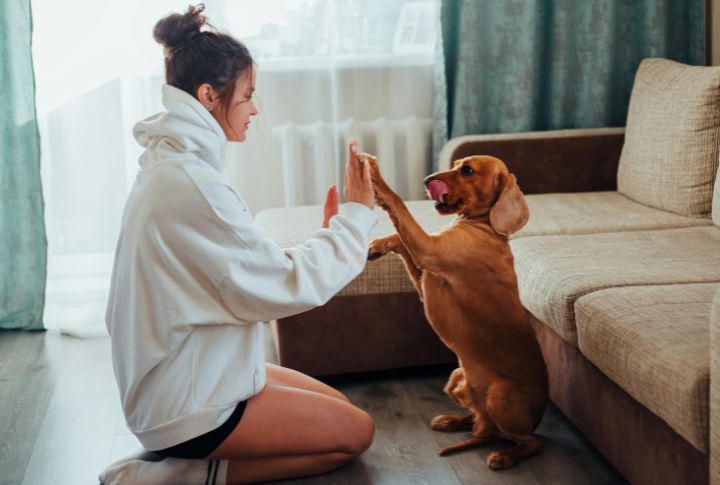
If your dog recently had a negative experience, such as falling off a bed or getting scared while jumping, they may associate the action with fear. Positive reinforcement using treats or gentle encouragement can help rebuild your dog’s confidence.
Your Dog Has an Injury or Trauma
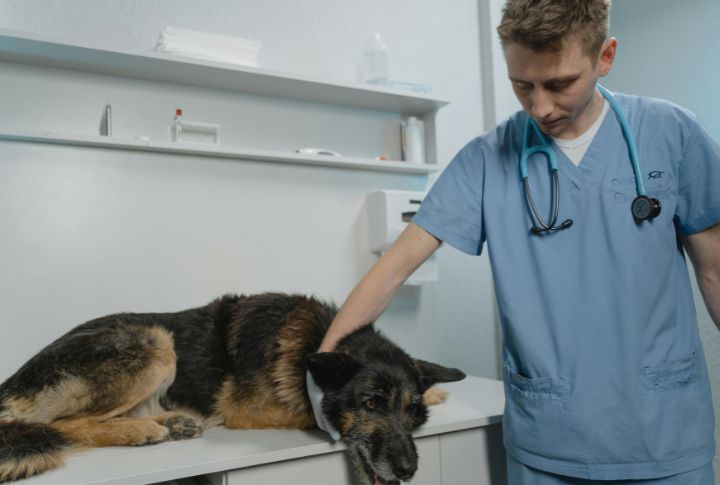
Dogs can injure their hind legs through physical activities or accidents. For example, the dog may have a pulled muscle, a fracture, or a ligament tear. If they show signs of limping or discomfort, you must give them rest and seek veterinary care for recovery.
Luxating Patella

A luxating patella happens when the kneecap moves out of its normal position, a condition common in small breeds. Dogs with this issue may avoid jumping due to discomfort. Incase your dog shows signs of skipping while running or avoiding jumps, a vet visit is needed.
Lethargy from Being Sick

Lethargy can be caused by various underlying health issues, such as infections or organ disease. If your dog seems more tired than usual and stops jumping, it could be a sign of illness. Give your dog adequate rest, the proper foods, and plenty of liquids.
Degenerative Myelopathy
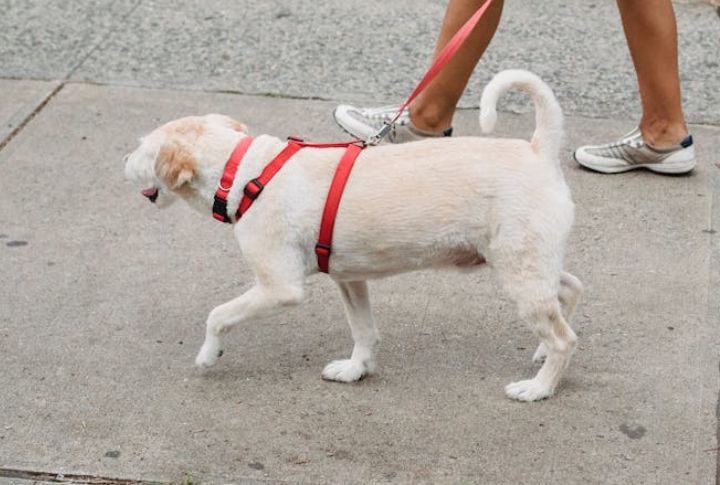
This progressive condition affects the spinal cord, causing weakness in the rear legs that can prevent jumping. Over time, it may even lead to paralysis. If your dog starts dragging their back legs or stops jumping, immediate veterinary intervention is required.
Joint Problems from Arthritis
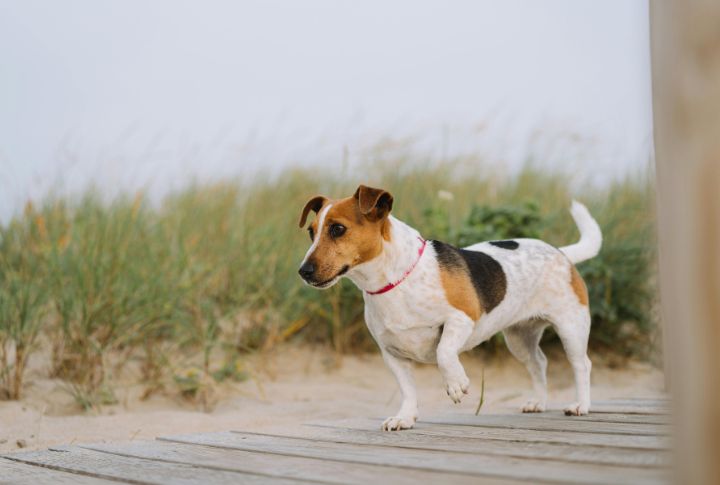
Arthritis causes joint inflammation and pain. The condition is especially common in aging dogs. Treatment options, from medication to supplements, can help manage their pain. Installing ramps or stairs can also assist them in getting onto furniture without jumping.
Myasthenia Gravis
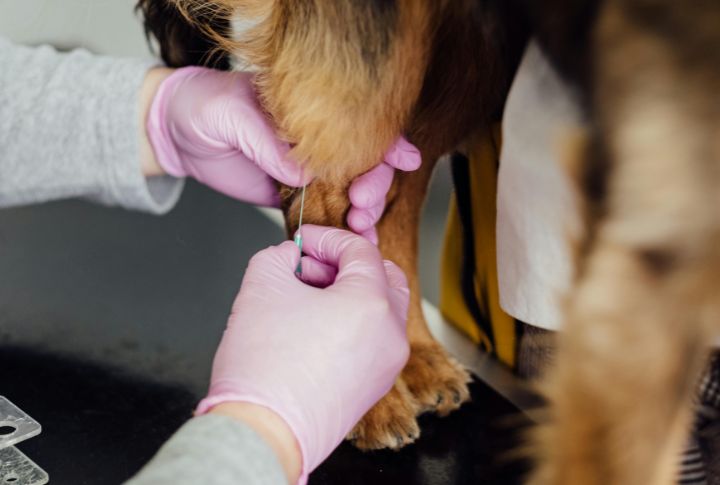
This is a disorder in some dogs that causes problems between muscles and nerves, causing weakness and fatigue. Certain breeds are more susceptible, and affected dogs may struggle to jump. Since this condition is serious, it’s important to get medical advice.
Excess Weight
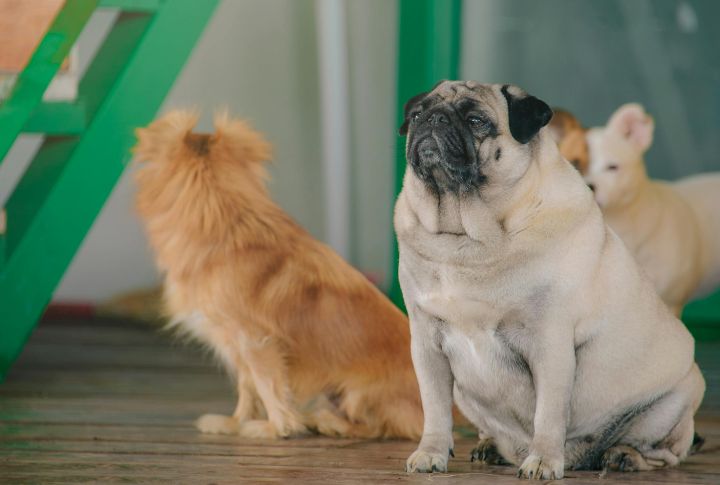
Carrying extra pounds can cause joint pain and discomfort in dogs. The added pressure on their joints leads to decreased mobility. If your dog seems overweight, a weight management plan can help them regain comfort and improve their ability to jump.
Hip Dysplasia
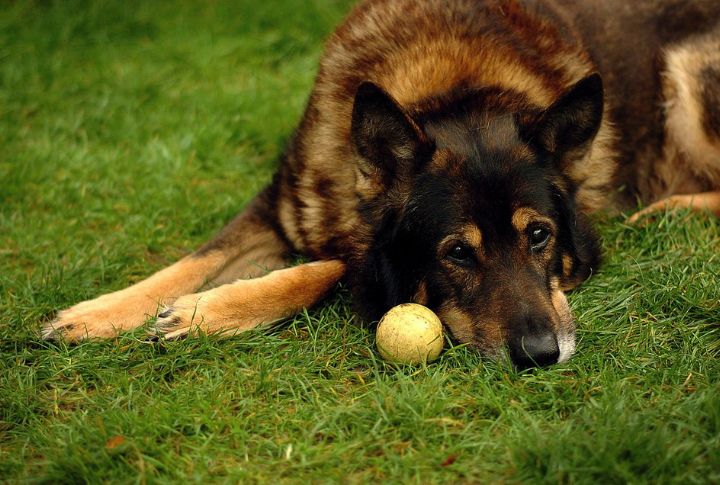
Canine Hip dysplasia is a genetic condition where the hip joint doesn’t fit properly and that causes pain and reduced mobility. Larger dogs are particularly prone to this issue. You may need to put your dog on a special diet and start providing your pet with joint supplements.
Your Dog Has Developed Anxiety
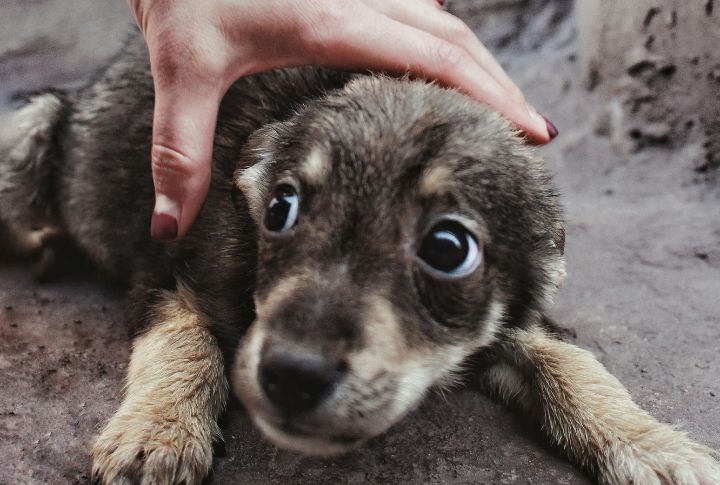
Sometimes, dogs stop jumping due to psychological reasons, such as anxiety. For instance, they might associate jumping into a car with an unpleasant destination like the vet. Addressing their fear with gradual training can help them regain jumping confidence.
Muscle Weakness
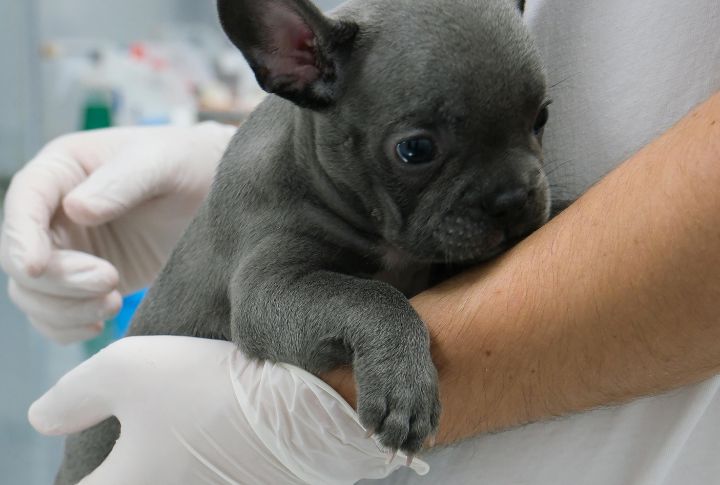
Muscle weakness can develop due to lack of exercise, injury, or illness. Regular exercise helps maintain muscle strength, but if your dog shows signs of weakness or reluctance to jump, it’s a good idea to consult a vet to rule out underlying conditions.
Heart-Related Conditions

If your dog has stopped jumping, it could be due to an underlying heart condition. Issues like heart disease can cause fatigue, shortness of breath, or general weakness, making it difficult for your pet to engage in activities requiring exertion.
Tick-Borne Diseases
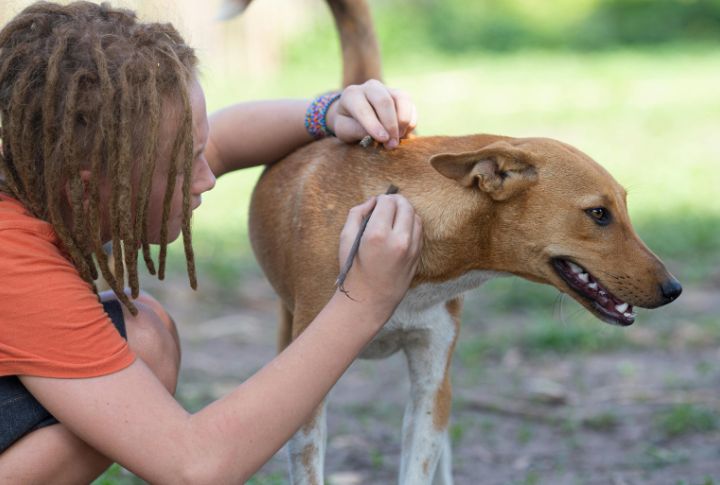
Ticks can transmit diseases like Lyme disease, which can cause stiffness or joint pain. If your dog has recently had a tick, joint discomfort might prevent them from jumping. Many ticks on their skin show there’s a high possibility that the problem is caused by tick diseases.
Intervertebral Disc Disease (IVDD)

This condition affects the spine, especially in breeds like Dachshunds and Poodles. Symptoms include difficulty jumping, a hunched back, and trouble walking. IVDD can be very painful, so if you suspect this condition, consult a vet immediately for diagnosis.





